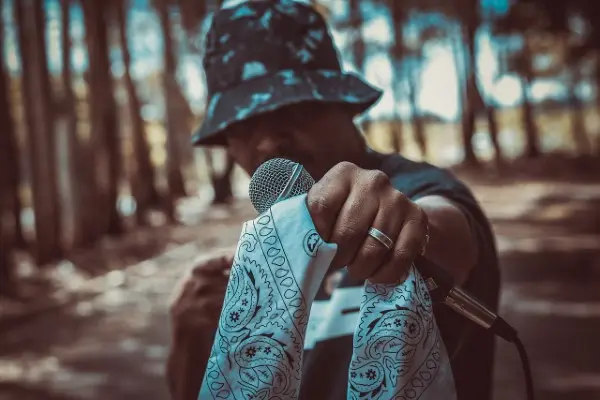Afrobeats
UK Afrobeats: A Cultural Fusion Taking Over the Charts

The Evolution of UK Afrobeats
Originating from West Africa, Afrobeats is a collective term used to describe a sound that's evolved over the years incorporating elements of traditional African music, highlife, jazz, soul, and funk. As Afrobeat started making waves in the diaspora, the UK scene embraced it, molding it to create a sound uniquely their own, known as UK Afrobeats.
The Rise of UK Afrobeats
The UK Afrobeats scene began gaining recognition in the early 2010s, with pioneers like Fuse ODG and Mista Silva releasing chart-topping tracks that introduced a new sound to the British audience. The success of these early artists paved the way for the next generation, leading to the emergence of British-Nigerian artists like J Hus and Not3s who blended Afrobeats with rap, R&B, and dancehall influences.
Chart-topping Success and Recognition
UK Afrobeats has made significant strides in recent years, taking over charts and receiving mainstream recognition. In 2016, Drake’s 'One Dance', featuring Wizkid, topped the charts in 15 countries, putting Afrobeats on the global map. Then in 2019, Burna Boy's 'African Giant' album, which included UK artists like Stormzy and Jorja Smith, was nominated for the Grammy's Best World Music Album, bringing more attention to the UK Afrobeats scene.
The Artists Defining the UK Afrobeats Scene
The UK Afrobeats scene is currently being dominated by artists like NSG, a group of six London-based artists who gained recognition with their hit 'Options', and Young T & Bugsey, a duo from Nottingham known for their catchy tune 'Don’t Rush'. These artists have managed to fuse the upbeat rhythms of Afrobeats with British influences, making their music resonate with a global audience.
The Influence and Future of UK Afrobeats
UK Afrobeats continues to break barriers and blend cultures. Its influence can be seen in clubs, festivals, and radio stations across the country. As more UK artists continue to experiment with the sound, Afrobeats is expected to keep evolving, solidifying its place in the UK music scene. The future is bright for UK Afrobeats, with an increasing number of collaborations, rising artists, and global recognition, this genre shows no signs of slowing down.
Artists that have been influential in the Afrobeats scene
-
WizkidOften considered a pioneer in the Afrobeats scene, Wizkid's unique fusion of Afrobeats, reggae, and pop has led to international success.
-
A Grammy-winning artist, Burna Boy's music blends Afrobeat, dancehall, and reggae influences, contributing to the global prominence of Afrobeats.
-
DavidoKnown for his infectious melodies, Davido's music has helped in bringing the Afrobeats genre to the international stage.
-
Tiwa SavageOne of Africa's biggest stars, Tiwa Savage blends traditional Afrobeats rhythms with modern pop sensibilities.
-
Mr EaziWith his unique "Banku Music" style, Mr Eazi combines elements of Ghanaian highlife and Nigerian chord progressions, creating a sound that's distinctively his own.
-
Yemi AladeKnown for her vibrant and energetic performances, Yemi Alade's music has made her a central figure in the Afrobeats scene.
-
TeknoHis catchy hooks and vibrant dance beats have made Tekno a popular figure in the Afrobeats landscape.
-
Maleek BerryA British-born Nigerian record producer and recording artist, Maleek Berry's sound is a fusion of Afrobeats, hip hop, and British music influences.
-
PatorankingKnown for his unique blend of reggae and Afrobeats, Patoranking's music resonates with a global audience.
-
Fuse ODGBorn in London and raised in Ghana, Fuse ODG is known for his innovative sound that blends Afrobeats, hip-hop, and other genres.
Conclusion
UK Afrobeats has not only altered the landscape of the UK music scene but it has also played a crucial role in promoting African culture and heritage. The popularity of the genre continues to grow, and its impact extends beyond music, influencing fashion, dance, and popular culture, proving that UK Afrobeats is much more than just a music genre – it's a movement.